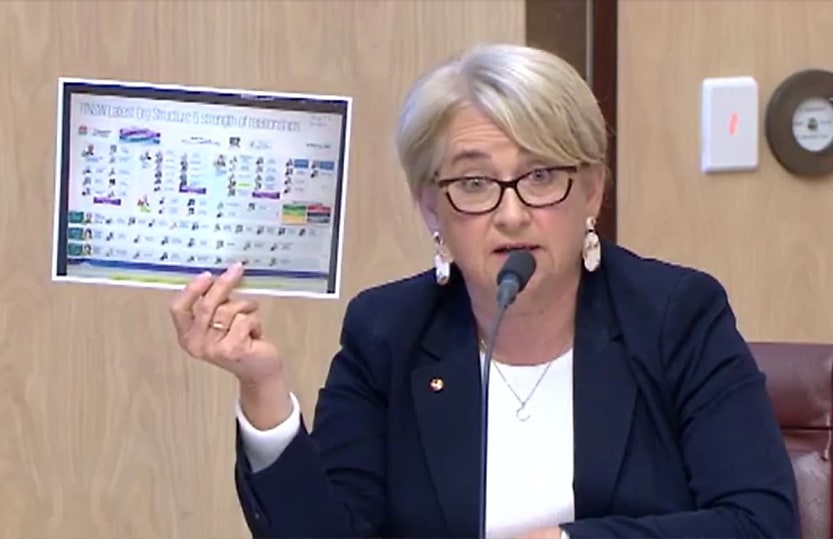KPMG caught using secret ‘power maps’ to secure Canberra contracts

Senators blasted KPMG's CEO for lying and breaching public trust after he denied his firm targeted officials based on their influence and relationship.
KPMG CEO Andrew Yates has denied claims from senators that he lied about making “power maps” identifying key federal decision makers to secure $40 million worth of taxpayer money, despite being shown evidence to the contrary during a parliamentary inquiry into consulting services on Wednesday.
Mr Yates, who said KPMG did not engage in the controversial practice during an earlier hearing, was shown an internal company document with a colour-coded diagram of a government department’s senior organisational structure.
The document assigned 72 officials colours ranging from green to red based on their relationship strength with KPMG, which was categorised as a “sponsor, good relationship, ambivalent relationship, poor relationship, no relationship or unknown”.
Labor senator Deborah O’Neill said: “Mr Yates claimed that he was not aware and did not engage in the practice, but that was exactly the practice described by the document that was presented to him.”
Greens senator Barbara Pocock accused Mr Yates of being in contempt for lying to the Senate.
“This [document] is contradicting your comment very directly that you do not do this practice. Are you not in contempt of the Senate? You have lied to us, have you not?”
Ms Pocock said the unnamed government department gave KPMG $40 million worth of contracts, with KPMG being “very dependent on sustained taxpayer billing to maintain its headcount and profits” as the largest public sector consultant and recipient of the most untendered government contracts in the country.
“You are mapping, evaluating these people on their usefulness to you in harvesting income out of the public sector … with the purpose of understanding who are your sponsors, who can you get more from. And that is not acceptable,” Ms Pocock said.
Mr Yates agreed that KPMG had made the diagram categorising the strength of his firm’s relationship with senior officials but denied it was a power map.
“It's a relationship map, senator. This is not a power map. Across our organisation, we have an inconsistent approach to things like this. There is no standard way of power mapping, as the word was,” he said.
He said that when his firm worked for large government clients, it was necessary to keep track of people involved in engagements.
“For us to be efficient and effective in what we do, we need to understand who works in a place at a point in time and what the strength of the relationships are. And that's what this is showing,” he said.
Ms Pocock accused Mr Yates of engineering “cover-ups that are semantic rather than facing up to what you have been caught here doing the wrong thing”.
“This is a fundamental breach of trust,” she said.
“You have talked about trust … I think you have breached [your client’s trust], you have breached the Senate's trust and you have breached the trust of the Australian public.”
KPMG’s relationship with the Department of Defence was also questioned after a Four Corners report last month revealed that the firm exerted “significant influence” over senior Defence staff and had recruited over 100 defence personnel over the last five years.
“What does it tell us about your harvesting of those early contracts?” Ms Pocock asked.
Whistleblowers also told Four Corners that KPMG was awarded work with minimal scrutiny and had charged the Department of Defence $1.8 billion over the past decade.
About the author







